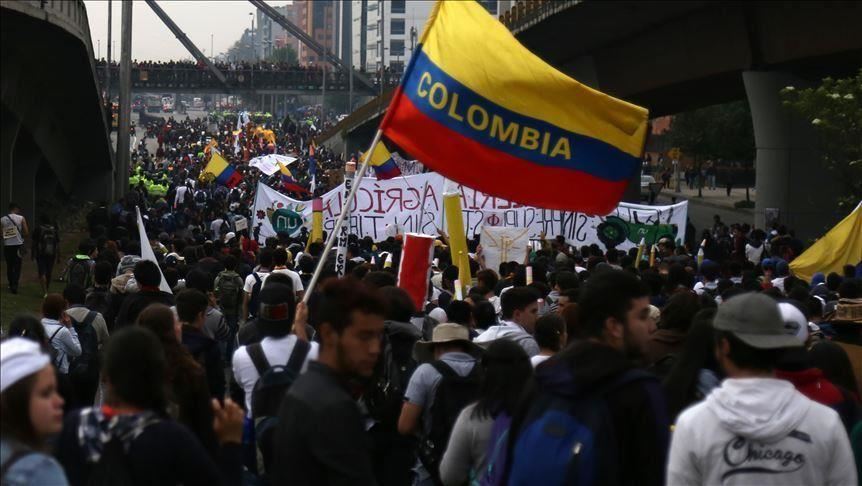
By Susana Noguera
BOGOTA, Colombia
A national strike entered its ninth day Friday in Colombia amid protests against the murder of social leaders and economic reforms proposed by President Ivan Duque, among other issues.
Protestors demand the implementation of a peace agreement signed with the Revolutionary Armed Forces of Colombia rebel group and the fulfillment of promises made to students on the last massive mobilization against Duque's policies.
Duque said he would respect freedom of expression, but would not tolerate violence or vandalism. He called for a “Great National Conversation” with businessmen, unions, local leaders and social movements.
But the National Unemployment Committee, made up of unions, student organizations and agrarian and indigenous leaders, have not responded to the call for the conversation and demanded direct and independent talks with Duque, plus guarantees to exercise their right to protest.
The National Strike Committee list of requests has 13 claims, including fighting corruption, improving the agricultural sector, protection of the environment and rejection of state assets privatization.
Students demand more funding to public universities, feminist movements request free and legal abortion and social leaders asked for the end of violence in rural communities.
Protesters also disapproved of the Economic Growth Law, which is essentially tax reform. This document is part of what demonstrators call "the Duque's package," which unleashed turmoil and remains central to public debate.
Duque, who has been in office 15 months, faces a difficult test for his presidency. His job is now to find a strategy that protesters accept and one that could calm turmoil in the streets, even though the demands seem to be far from his governmental policies.
Demands stir more repression
The leader of the Regional Indigenous Council of Cauca (CRIC), Aida Quilcue, said the government has responded to demands with repression. "The government needs to replace the use of force within the constitutional framework and international law," she told Anadolu Agency.
Quilcue recalled Dilan Cruz’s death Saturday, Nov. 23 when the 18-year-old student died after being hit with a projectile launched by an agent of the Mobile Riot Squadron (ESMAD). "They are killing people and I believe that this cannot be the state's proper acting," she said.
Cruz's death made him a symbol of the student movement and his case is clear evidence of “excessive and illegitimate use of force against protesters,” said Jose Cardenas, head of the Student Representatives Association (ACREES) and member of the National Strike Committee.
Although Duque said he "deeply regrets" Cruz's death, the student movement continues to hold the government accountable for what happened. The National Strike Committee asked for the complete dissolution of the ESMAD police squad. However, Duque has stood up for the police and assured he would dismantle it.
The government and the National Strike Committee stopped negotiations Nov. 26. Diogenes Orjuela, president of Unitary Central of Workers, one of the largest unions in the country, said the group wants to discuss the issues of the document directly with Duque and specified that dialogue mechanisms “have not been permanently defined.”
Vice President Marta Lucía Ramirez said to have a national conversation, "ideally it will be inclusive and not exclusive."
After that meeting, Duque announced some measures, including withdrawing the Value Added Tax for three days and giving incentives to companies that hire people between the ages of 18 and 24. These initiatives were added to the controversial tax reform.
Cardenas, the head of ACREES, considers the measures taken by Duque do not respond to the groups requirements. "The answer is ambiguous and does not refer to the problems we have raised," he told Anadolu Agency.
Orjuela also strongly criticized the government proposals. There was not a single strike claim about VAT's return, he said. "It is a terrible hoax that is being raised by the Government.”
Not all industries have joined the strike. The transporters' union announced Thursday it would not participate in the national strike. “This government has been very receptive to passenger transport issues,” said Jose Yesid Rodríguez Hernandez, executive president of the Association for the Integral Development of Land Transportation (Aditt). It is necessary to normalize the situation in the country, he added.
The National Strike Committee called for ceasing work activities Dec. 4 and announced a social mobilization schedule until Dec. 10.
*Translated by Jose Baez G.


